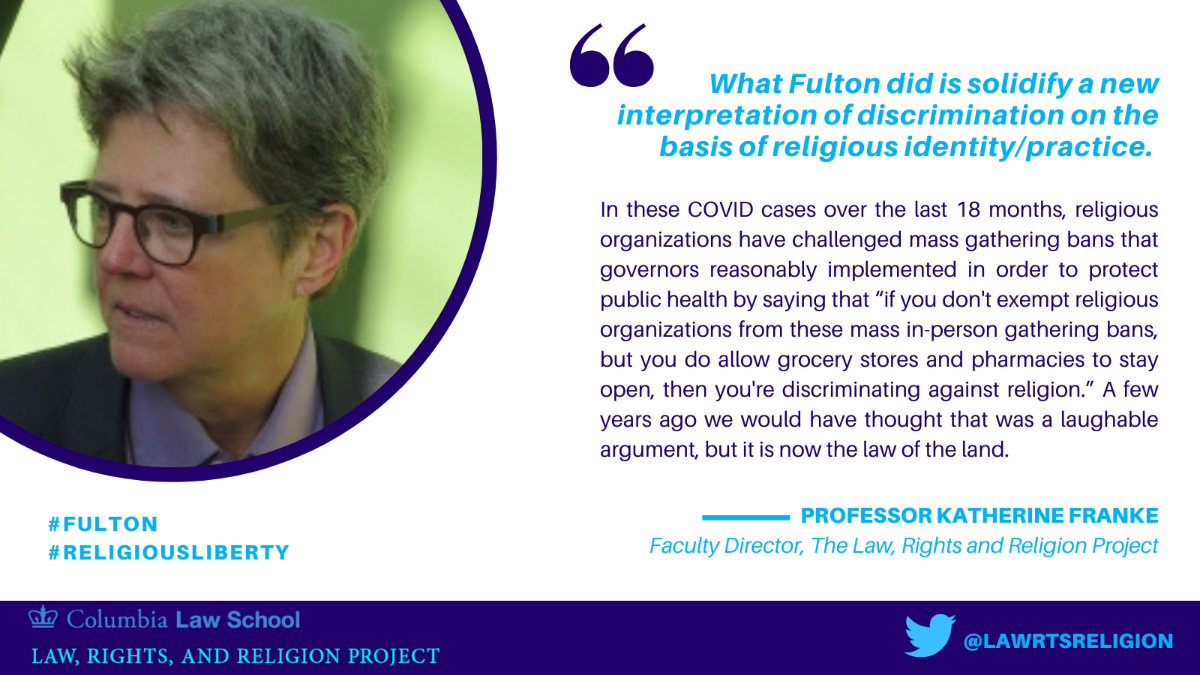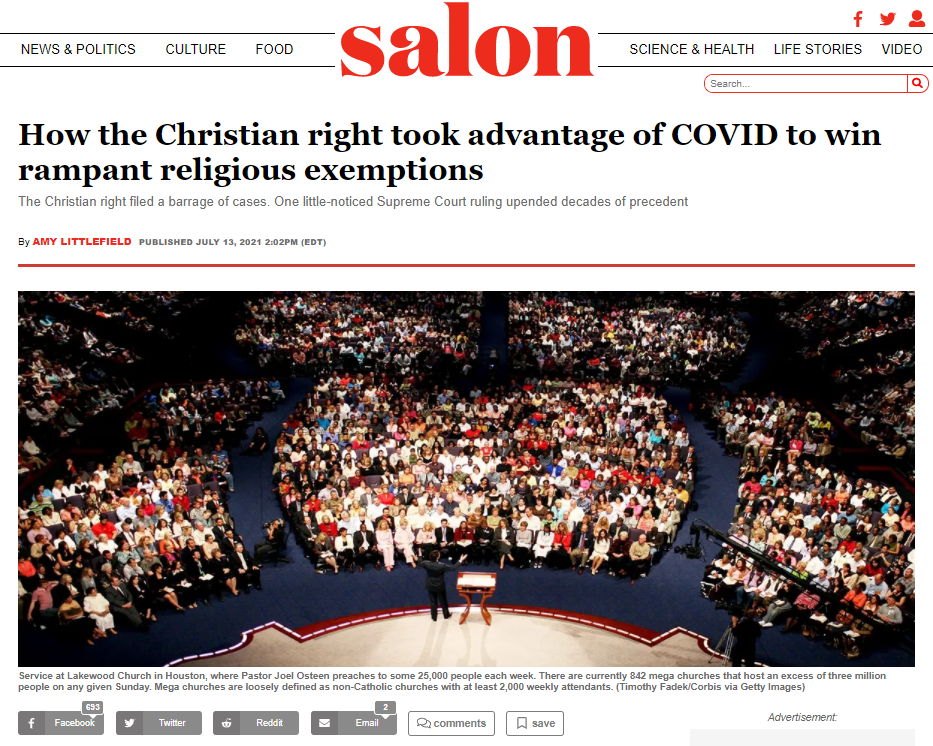Our Work in the World
Our work is having a significant impact on the meaning of religious freedom and developments in the role of religion in public life.
Read below on how we’re shaping the discourse around religious liberty.
In Salon, investigative journalist Amy Littlefield wrote about our most recent report, We The People (of Faith): The Supremacy of Religious Rights in the Shadow of a Pandemic:
“Lost in the weeds was a legal bomb. The Court had, in effect, ruled that if a government made any exception to a rule — like allowing people to grocery shop in a pandemic — it had to make an exception for religious activities. In other words, the justices had elevated religion above just about every other right, including free speech and racial equality, according to a report out today by Columbia Law School’s Law, Rights and Religion Project.”
A resolution submitted to the United Church of Christ on “Protecting Workers at Churches and Other Religious Institutions” cited LRRP’s 2020 report with Auburn Seminary, All Faiths and None: A Guide to Protecting Religious Liberty for Everyone. The resolution holds, “The United Church of Christ values religious freedom, and recognizes the moral responsibility that comes with it.”
LRRP's 2018 report Bearing Faith: The Limits of Catholic Health Care for Women of Color was cited in a letter by NARAL Pro-Choice Oregon to a state legislative committee in support of House Bill 2362, the Equal Access Care Act. Act has now passed the Oregon House and Senate. Bearing Faith was also cited in the scientific journal "Contraception" in an article on religious healthcare refusals in Wisconsin.
In Defense of the Sincerity Test, written by current LRRP Director Liz Reiner Platt and former Director Kara Loewentheil, was cited in an article in the European Constitutional Law Review: "True Believers? – Sincerity and Article 9 of the European Convention on Human Rights"
In her new book "The Politics of Vulnerability: How to Heal Muslim-Christian Relations in a Post-Christian America: Today's Threat to Religion and Religious Freedom," Asma Uddin cites LRRP's 2019 report Whose Faith Matters? The Fight for Religious Liberty Beyond the Christian Right.
Other Media Mentions
Supreme Court Signals Expansion of Religious Exemptions From Laws
6/20/2021
Jess Bravin, Wall Street Journal
"When the court can avoid the issue no longer, the balance will likely go to religious believers, said Katherine Franke, faculty director of the Law, Rights and Religion Project at Columbia Law School.
“Fulton showed us that the court is disposed to a kind of tiering of constitutional rights where some rights are higher-ranked over others,” Ms. Franke said. “Religious liberty sits at the top tier. And equality, whether it’s race- based, sex-based or LGBT equality, enjoys now a kind of second-class status,” she said."

You can listen ? to the above + more analysis by Professor Katherine Franke on the Fulton v. City of Philadelphia case in the podcast Strict Scrutiny hosted by Kate Shaw and Melissa Murray.
Religious Liberties and the New Supreme Court: What’s at Stake for Women and the LGBTQ+ Community
4/7/2021
Hannah Hayes, American Bar Association
“Religious rights as a ‘first freedom’ is an idea pushed by members of the Christian right that religious liberty is not just part of the First Amendment, but it’s the most important part above all other rights,” says Elizabeth Platt, director of the Law, Rights, and Religion Project at Columbia Law School in New York City, a law and policy think tank launched in 2014 to address the increased use of religion-based exemptions from compliance with federal and state laws.
Platt points out that while religious liberty cases have been making an appearance on the SCOTUS docket for a long time, who is bringing them and who is winning them is what has changed. “We’re talking about a very narrow set of views,” says Platt, who points out that many religious liberty cases in the ’80s and ’90s were brought about by a variety of smaller groups, such as Orthodox Jews or Seventh-Day Adventists. “A lot of the big-name cases that have won over the past few years have been brought by much larger conservative Christian denominations, and that is a significant shift.”

